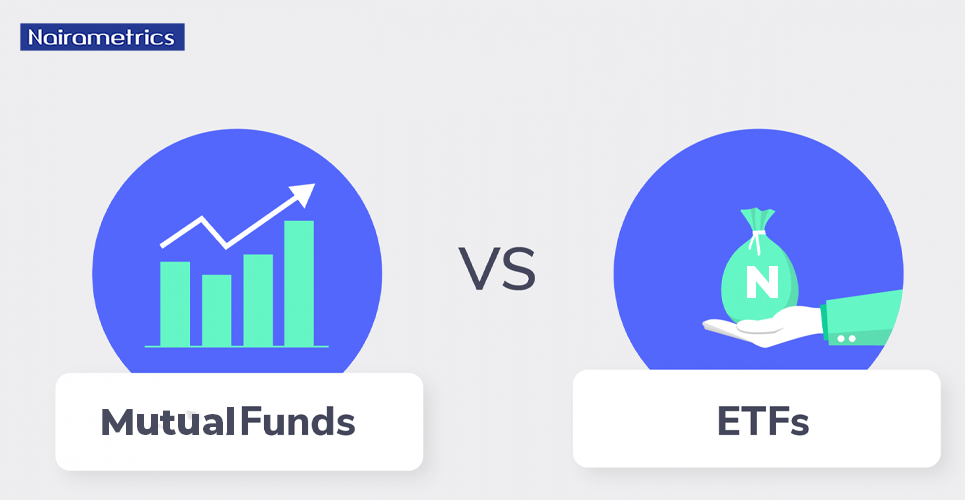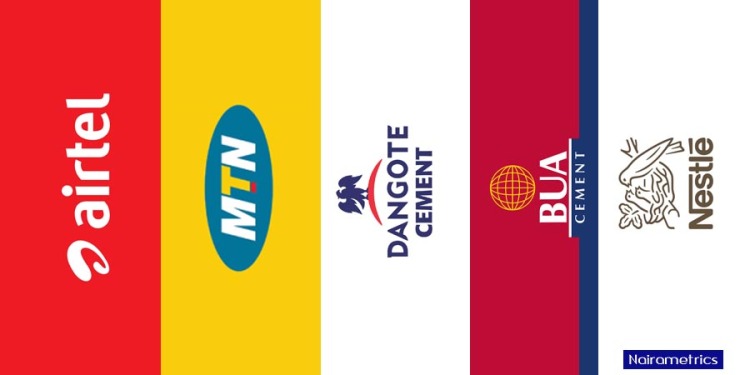This week, we will review Nigerian issued Exchange-Traded Funds (ETFs) and Mutual Funds (MFs), which SEC Nigeria defines as collective schemes.
Why Collective Schemes?
I am a big fan of collective investment schemes (ETFs and MFs) because they offer investors the opportunity to diversify their portfolios by spreading risk at a cost lower than investing in individual stocks. Mutual Funds and ETFs are almost the same, and they are both pools of managed funds that seek to invest in line with a predefined objective. The objective can be geographical targetings, e.g., investing in only companies operating in Nigeria, or asset class targeting,e.g., investing in just equities.
For example, suppose I want to invest in the US only, in the tech space specifically. In that case, I can buy the Vanguard Information Technology (VGT). By owning the VGT, I own an index that tracks information tech companies like Apple, Microsoft, NVIDIA, and Visa.
What’s the difference between ETFs and Mutual Funds
Exchange-Traded Funds (ETF) and Mutual Funds (MF) are very similar in operation as they are both collective schemes. The main difference between ETFs and MFs is that ETFs can be bought and sold during the trading day, while MF can only be traded at the close of the business day. EFTs also have some tax advantages with lower expense ratios. Figure one shows a diagram from etf.com on the key differentials.
Figure 1: EFT and Mutual Fund Comparison

Overview of the Nigerian EFT and MF industry
As of Q1 2021, according to data from the Securities and Exchange Commission of Nigeria, Nigeria has 12 registered ETFs and 109 Mutual Funds covering Money Market, Equity, Real Estate, and Commodity Asset classes. Some funds are “balanced,” meaning investors have access to different categories of assets within that fund. Other funds are “ethical,” meaning that the selection of investments into the fund follows ethical or religious considerations, such as no alcoholic beverage companies.
What are the criteria to score the ETFs and MFs?
MF and ETFs are investment opportunities. Thus we measure the return they pay back to investors as expressed in earnings, specifically the Return on Equity. I will also show the cost of that earning to the investor by indicating the expense ratio for the fund.
Overview of ETFs in Nigeria as of 28th February 2021
There are 12 ETFs registered by SEC in Nigeria. 10 ETFs hold equities, one EFT (Vertiva S&P Nigeria Sovereign Bond ETF) holds only bonds. One ETF (New Gold ETF) holds gold and bonds. As of 28th February, the total value of investments in ETFs in Nigeria stood at N18.48 billion. The average expense ratio is 0.06%, with the Stanbic ETF 30 charging the highest fees at 0.29% and New Gold ETF charging the lowest Fee at 0.01%
Figure 2: EFTs ranked according to NAV change

The New Gold ETF has the highest change in Net Asset Values from January 2012 to February 2021. This rise in NAV corresponds to an increase in the asset value of gold in the portfolio from N8.2 billion to N11.7 billion. Keep in mind as inflation goes up in Nigeria, it makes the value of assets priced in USD appreciate. The New Gold ETF thus is an asset class to hedge against inflation.
It is also important not to compare a bond fund to equity funds as both are different and will meet the investment objectives of different investors. Bond funds are usually preferred where the objection is Capital Preservation. In contrast, equity-heavy EFTs are selected where the objective is Capital Appreciation. However, it is instructive that the only bond ETF listed outperforms pure equity ETFs. The Vertiva Bond ETF tracks issued FGN bonds. A cursory look at the assets in the ETF shows a portfolio with the bulk of the holdings still beating double-digit inflation in Nigeria.
Figure 3: Vertiva S & P Nigeria Soverign Bond ETF Composition

Overview of Mutual Funds in Nigeria as of 31st May 2021
The Securities and Exchange Commission of Nigeria has about 109 registered Mutual Funds. The bulk of Mutual Funds in Nigeria are fixed-income funds of various maturities. These include Money Market, Fixed Income, and Bond Funds. Money Market funds, which are short-term duration funds, have the highest number of subscribers, almost 240,000. The total Assets under management in the MF asset class is N1.36 trillion (May 31st 2021).
Figure 4 shows the market share to total NAV of Mutual Funds as of May 2021

Again we will rank the funds in order of performance using Return on Earnings. SEC calculates Return on Equity as Total Net Income (or loss) divided by Net Asset Value. With Mutual Funds, we will separate funds with an equity component and fixed income.
Figure 5: Fixed Income Mutual Funds Ranking

Figure 6: Equity-based Mutual Fund Ranking

The Equity-based MF returns overall outperformed the fixed income funds in terms of return on equities. Equities MF as an asset class did not beat inflation which was quoted at 18.35. The MF market also shows dept with ValuAlliance offering unquoted equity under a total return objective where it’s seeking undervalued securities trading at a low price to book.
The Nigerian equities market peaked in late January and has been below the 40k index line for most of the year, following a strong start. The AIICO balanced fund, for instance, had a Return to Equity of 11.85 in February 2021. See Figure 7 showing NSE All-Share Index.
Figure 7: Nigerian All Share Index YTD 2021

Again, it’s crucial to only compare within Asset classes and not across; you compare Fixed Income with Fixed income, not with Variable income like equities.
How to use MF and ETFs
Collective schemes provide diversification at a lower cost. Suppose you have a longer-term horizon and can accommodate risk, in that case, equity-based funds can meet that objective by offering a real rate of return. If you are investing in a fixed income, then match maturities. If you have an investment horizon greater than 24 months, consider Bonds. If your investment window is much shorter, then Money Market funds should be your preference.
It is also essential to watch the expense ratios. The top performer in May in the equity category Lead Balanced Funds has a 10% expense rate. It is also important to find out from the managers if they offer Dividend Rinivestment plans that will allow compounding of dividends. I always advise you to compound your returns by reinvesting dividends.


















Thank you for your article.
From your table Nigerian ETFs should not be touched, as they have all depreciated before inflation is factored in (except the New Gold).
So, your advice “Suppose you have a longer-term horizon and can accommodate risk, in that case, equity-based funds can meet that objective by offering a real rate of return” contradicts the facts on the tables you showed.